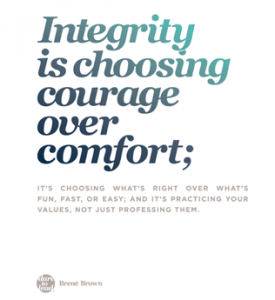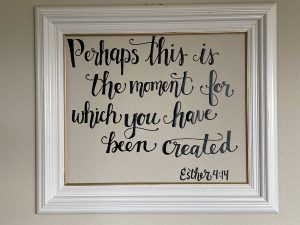
Have you ever had a moment when someone unexpectedly came alongside you through a difficult situation, and it was the game changer in your strength, possibly the outcome? I reckon most of us can recall such a moment and can clearly remember more about the details of the person who did this than the actual situation. It’s an “ubuntu” moment, and likely happens more often than were aware of, yet not often enough.
As my son Thomas was finishing up grade school, I had an interaction with another mom who learned that I was Thomas’ parent. It was an intense moment at this school event where she verified by asking “You are Thomas Kleingartner’s mom? That boy over there?” pointing in his direction. Of course, I acknowledged our relationship with some trepidation of what may follow, knowing how 10-year-olds can be. The mom continued to approach me, grabbed my hand, and with tears in her eyes she explained the story behind her emotions. You see, her son Joey has several learning disorders stemmed from a horrible disease which manifests in outbursts and other unexpected behaviors. She stated Thomas’ acknowledgement of Joey, his simple gestures of inclusion made “all the difference” in classmates acceptance of Joey, which in turn improved his desire to go to school every day. Joey acknowledged Thomas’ support to his mom, and eighteen months later, his mom praised my parenting skills to raise such a compassionate and caring human being. I. Had. No. Idea. This was a “me to we” between Thomas and Joey, and “me to we” in the feedback from Joey’s mom to me (I was moved to tears as well with such joy to hear of the impact my son had).
My daughter Sydney (Thomas’ twin) coined the term “courageously kind” in high school. She drilled down the point for me that kindness isn’t always easy. It isn’t popular or welcome to take an unconventional stance. It takes personal courage and conviction to articulate a contrary or radical belief. I needed to be careful in tossing the flippant advice of “be kind to others,” to realize what I am asking and take the time to coach and counsel through the courage. The teenage years certainly offer lots of social experiments to become courageously kind. But does the need for this personal growth and development in us and our behaviors stop in high school? It does not. We have examples all over our society where we can benefit, grow, and change from the partnership of courageously kind support. All ages. There are many circumstances where being a “lone nut” is indeed…. lonely.
I see this often in the workplace where innovators and early adopters are swimming against the current. Their ideas can be mocked or secret allegiances formed to try to fight against change. Or colleagues talk about people, rather than talk with them. It can be lonely as leaders, whether in our community, school, place of worship, and work, to initiate a new practice or test out a different approach only to be greeted with resistance. As bystanders, we are presented with a choice whether to lock into our values, commit the time and energy, or not. I know I have personally chosen not to saddle up and join the calvary in the interest of my time and unknown but anticipated risks. This is not meant to shame, but encourage (myself, you, we) in the consideration of some tiny actions to become courageously kind:
–muster the belief that our words, gestures and actions matter. Perhaps it’s looking the grocery store cashier clear in the eyes and saying thank you; or acknowledging when a meeting went bad by following up with key individuals to offer support and listen;
–muster patience with ourselves, recognizing this can be scary or unpopular. The road of courageously kind may be “road less traveled” (Robert Frost); we need to equip and prepare for the journey which includes thoughtful analysis and securing the supports we need as well;
–muster the confidence and understanding that the timing isn’t always clear and there will never be the “perfect” time (although we usually can tell when it’s a bad time). An analogy could be that first jump off a diving board (scary): we have the supports we need (swim coach and lifeguard) and so long as there is water in pool (bad time otherwise) you might as well jump in for that first dive;
–muster the courage to engage, to believe in the intangible impact my kindness has to someone we know deserves our support. We short change ourselves on the importance we have. Is it possible for an eight-year-old to really make that much of a difference just by acknowledging a classmate by name? We know the opposite is true where there is absence, but can I really make a difference? Yes. The courage you’ve mustered up is in the unknown on what the impact is, the response to your engagement, the amount of time you will have to commit;
–muster the intention and commit time to stand alongside or encourage another where it aligns with your values. Courageously kind must be authentic. You must stand for what you believe in and it can only be received if it is genuine and not sugar coated.
I have this scripture on my wall in the living room, and it really resonates with me.

Perhaps this is the moment for which you have been created. Esther 4:14
The story behind Esther and Mordecai is much deeper and there was far more at risk for each of them than my son’s choice to follow his heart and support a classmate (learn more about Esther here). And yet I realize the blessing of those moments, either as the giver or receiver can and will make a difference. A difference we may never learn about for years, if ever. Yet knowing the impact doesn’t matter. Believe in the impact you will have from being courageously kind.
I am because we are. Ubuntu.

Pingback: “Would You Rather …” – T. A. S.
Pingback: Receive Feedback – T. A. S.